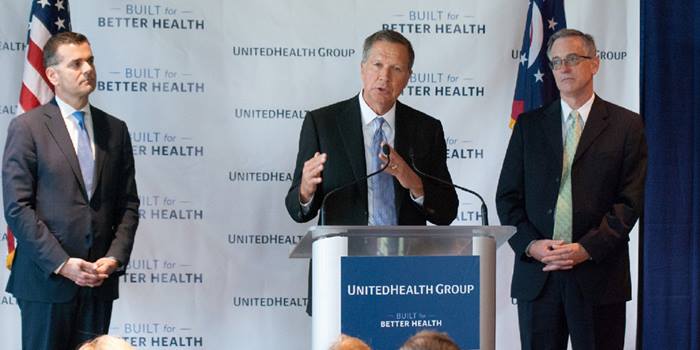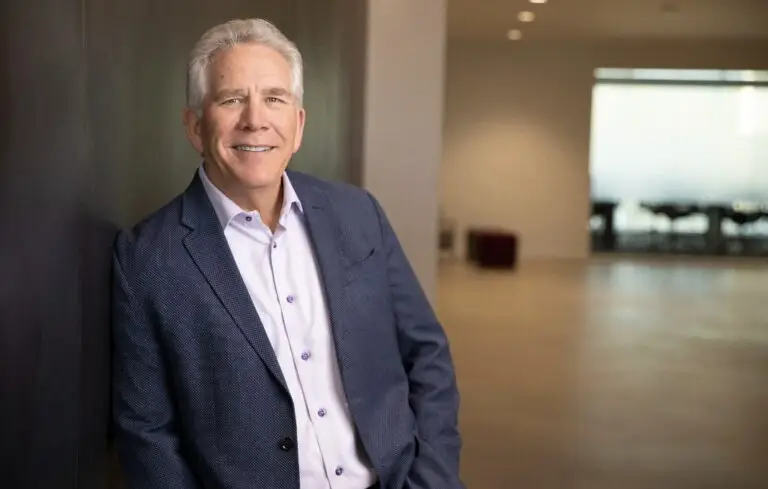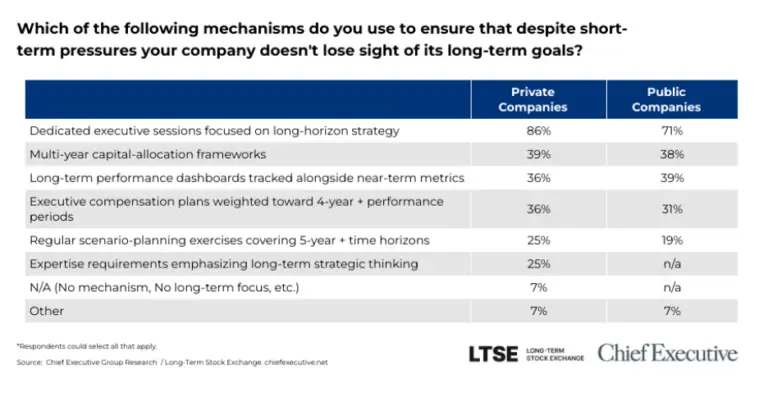
UnitedHealth Group in 2019 is set to “invest, innovate and grow” amid “the breadth of opportunities across healthcare,” says CEO David Wichmann.
“Our nation is early in an exciting healthcare innovation wave, one we expect to help lead, which will drive growth at UnitedHealth group for years to come,” Wichmann said in the company’s fourth quarter earnings conference call.
The Minnetonka, Minn.-based health insurer’s strategy includes augmenting “high-touch” human interactions with digital channels that are backed up by data analytics and proprietary clinical ontology to help improve medical care health outcomes, he said. These efforts are supported by UnitedHealth’s rapidly growing team of clinicians and evolving pharmacy care services, as well as the introduction of “innovative, lower cost” consumer-centric health benefit designs and services such as Bind, Colorado doctor’s plan, Motion and Nexus ACO.
“This healthcare system will increasingly operate in a multi-payer and value-based context with aligned incentive to care providers and consumers to make better healthcare decisions leveraging deeply personalized information and clinical science,” Wichmann said. “This modern approach produces measurable value and looks and feels refreshingly different than traditional healthcare today. So I hope you can see why we are energized by the opportunities ahead of us.”
The insurer in November began testing a beta version of its new individual health record technology to three accountable care organizations — and the results so far have been promising, Wichmann said during the company’s investor conference, FierceHealthcare reported.
Two patients’ lives were possibly saved by the use of the technology, which “positively altered the course of treatment,” he said. In one case, the use of artificial intelligence embedded into the IHR enabled the doctor to confirm a “previously unmade diagnosis…dramatically modifying the patient’s treatment plan.”
“Our goal of reaching the 50 million people we serve with the IHR is no longer a question of if — it’s when,” Wichmann told investors. By the end of this year, the technology will be available for free to all members in North and South America.
Wichmann in March told CNBC’s “Mad Money” host Jim Cramer that technology should curtail health care costs within a decade.
“I think the systems of the benefits and the health systems broadly going to more value-based mechanisms will drive greater efficiency and effectiveness in health care,” he said.
Already the company’s tech-enabled health services business Optum is providing “a massive bank of data” to achieve these goals.
“That is used by us for A.I., machine learning, advancing … technologies broadly in health care and making a difference on the predictive values of understanding who may get sick and under what circumstances we need to help them with their care,” Wichmann said.
A veteran of the company for more than 20 years, Wichmann became CEO of UnitedHealth Group in September 2017 and also serves on the board of directors. Previously he served as president, UnitedHealth Group, beginning in November 2014, and also served as chief financial officer from 2011 until mid-2016.
Wichmann previously held positions as president, UnitedHealthcare; president and CEO, Specialized Care Services (now OptumHealth); and senior vice president, corporate development. Prior to joining UnitedHealth Group in 1998, Wichmann was a partner with Arthur Andersen.
He’s No. 6 on Chief Executive and RHR International’s CEO1000 Tracker, a ranking of the top 1,000 public/private companies.
David Wichmann, CEO of UnitedHealth Group
Headquarters: Minnetonka, Minn
Age: 57
Education: Illinois State University (B.S.)
First joined company: 1998
Positions prior to joining UnitedHealth: Partner with Arthur Anderson
Named CEO: 2017







